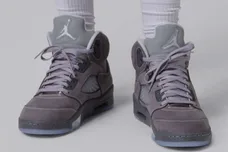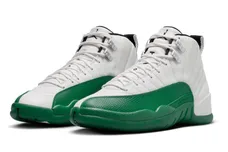While Pop Smoke didn't invent Brooklyn drill, he became its global ambassador. New York rap has long relied on singular figures to reclaim its dominance—A$AP Rocky and Joey Bada$$ revived its golden-age aesthetics, while Bobby Shmurda tapped into drill's raw energy early on. But as Brooklyn drill took shape, merging influences from Chicago and London, it was Pop Smoke who transformed it into a worldwide phenomenon.
Every few years, an artist emerges as a clear contender for the throne. When Pop Smoke stepped out of Brooklyn’s shadows with “Welcome to the Party,” it felt like an earthquake shaking the rap game. That summer, the song led the way for New York’s drill movement, and Pop Smoke’s presence rippled through hip-hop. His affiliation with Steven Victor placed him on stage during Pusha T’s set in New York, cementing his rising influence in front of his hometown. Then came “Dior,” a track that put his gruff, raspy delivery into a new context—one that was as confrontational as it was cool and collected.
“Dior” Became Much More Than A Breakout Record
That success was no accident. Pop Smoke’s artistry wasn’t just about making anthems; it reflected a cultural shift. The streets gravitate toward voices that articulate struggle while envisioning the success that follows sacrifice. While his early material was rooted in hyper-local beefs, he carried himself with the invincibility of a rap superstar. Aspirations of luxury and power became central themes in his music, setting him apart from his Brooklyn drill counterparts. That’s why “Dior” felt like an anomaly—it cut through drill’s bleak realities with the extravagant lifestyle that success afforded him. Designer brands, flashing lights, and financial freedom were all woven into his narrative, a perspective that broadened drill’s appeal beyond its raw origins.
Hip-hop’s political undertones have been present since its inception, and even songs that don’t seem inherently political can take on new meanings in cultural movements. Future’s “March Madness,” for instance, became a protest anthem despite its unrelated lyrical content. Similarly, “Dior” soundtracked Black Lives Matter demonstrations following George Floyd’s death. Protesters chanted its lyrics in the streets, its pulsating drill beat and commanding delivery transforming into a symbol of defiance, freedom, and respect. Even after his passing on February 19, 2020, Pop Smoke’s music resonated with the disenfranchised, echoing the voices of those who shared similar struggles.
A Trajectory That Aimed For The Moon
That ability to connect with both the streets and a broader audience hinted at something greater—he wasn’t just a drill rapper; he was becoming a generational voice. His ability to navigate multiple worlds—balancing Brooklyn’s rawness with high fashion’s allure, blending street anthems with mainstream appeal—positioned him as a generational talent. His posthumous debut album, Shoot for the Stars, Aim for the Moon, released in 2020, reflected that vision. With 50 Cent’s executive production, the album bridged gaps between the streets and the charts, incorporating melodic elements that hinted at a trajectory similar to 50’s own. Songs like “For The Night” and “The Woo” showcased a versatility that extended beyond drill’s aggressive bravado, proving he was evolving into a global artist.
An Everlasting Legacy

Had Pop Smoke lived, his influence would have likely expanded beyond music into film, fashion, and business. He had already begun forging relationships with high-end designers, attending Paris Fashion Week, and positioning himself as a brand ambassador in a way reminiscent of Travis Scott and A$AP Rocky. Musically, he was expanding his sound, poised to dominate mainstream rap without compromising his edge. While Brooklyn drill continues to thrive, no artist has truly stepped into the void he left behind. Even pioneers like Sheff G and 22Gz, who helped shape Brooklyn drill before Pop Smoke’s rise, haven’t pushed it beyond the underground in the same way.
Despite his absence, his impact still lingers. Yet, we’re left wondering—where would he be today? Would he have refined drill into a chart-dominating force? Could he have become the next big mogul, branching into acting and business? Would he have led the next phase of New York rap’s evolution? His tragic death left those answers unknown, but his influence is undeniable. Pop Smoke’s run was a movement, one that reshaped the sound of a city and transcended borders in ways that won’t be easily replicated.









